Current GAUSSI Trainees
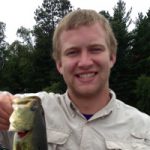
Adam Heck
Adam is a graduate student in the Cell and Molecular Biology PhD program. His work in Dr. Carol Wilusz and Dr. Jeff Wilusz’s lab deals with the effects of RNA methylation on mRNA stability and gene expression. Specifically, he is utilizing human foreskin fibroblast (HFF) and induced pluripotent stem (iPS) cells as models to examine the differences in RNA methylation that drives cell differentiation.
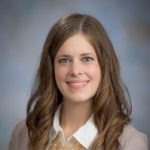
Aeriel Belk
Aeriel is a doctoral student in the department of Animal Science in the College of Agriculture. She is working under Dr. Jessica Metcalf to investigate the decomposition-associated microbiome. Specifically, she is modeling the postmortem succession of microbes to estimate the time of death in human cadavers and using the microbiome to evaluate mechanisms to modify the shelf-life of meat and poultry products. She obtained a B.S. in Animal Science from CSU and a Master’s in Animal Science with certificates in meat science and food safety from Texas A&M University.
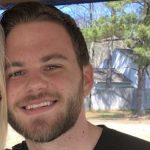
Alec Richardson
Alec is a PhD student in the School of Biomedical Engineering, working jointly under Dr. Charles Henry and Dr. Stuart Tobet. His research is focused on engineering an ex vivo intestinal model utilizing microfluidics and biosensing, with hopes of better understanding how host-microbiome interactions impact human health and disease. Long-term, Alec plans on connecting multiple tissue type (i.e. intestine, pancreatic, adipose) via microfluidic circuits to create ex vivo “body-on-a-chip” models.
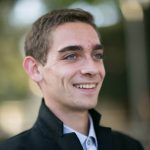
Alex Mauro
Alex is a PhD student in Biology and the Graduate Degree Program in Ecology. He is a member of Dr. Cameron Ghalambor’s lab. His research focuses on understanding on how genetic processes and selective pressures interact to influence range limits and local adaption in tropical fishes from the island of Trinidad.
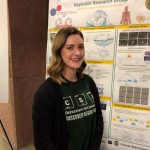
Alyssa Melvin
Alyssa is a doctoral student in the Department of Chemistry in the College of Natural Sciences. She received her B.S. in Chemistry at Gannon University in May 2017. She is working under Dr. Melissa Reynolds developing biosensors that incorporate metal-organic frameworks (MOFs) into various aspects of the design to address common deficiencies of enzymatic biosensors. The first part of her project is focused on enhancing the biocompatibility of an in vivo glucose biosensor using MOFs. The second part of her project, in collaboration with Dr. Tom Chen, is focused on using MOFs to improve the signal transduction in the biosensor.
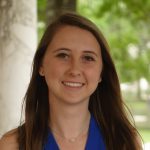
Amy Fox
Amy is a PhD student in the Microbiology, Immunology, and Pathology department. Her research with Dr. Marcela Henao-Tamayo and Dr. Brooke Anderson focuses on evaluating tuberculosis vaccine efficacy using computational tools. She is currently developing an R-based data analysis pipeline for flow cytometry data. Prior to pursuing her PhD, Amy earned a B.S. in Bioengineering from Rice University.
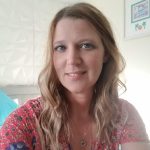
Breanna Wenck
Breanna (Bree) is a graduate student pursing her master’s degree in Biochemistry as part of Tom Santangelo’s research group in the Biochemistry and Molecular Biology Department. She received her B.S. in biochemistry in May 2019 at Colorado State University, where she studied and characterized a factor that terminates transcription in archaeal organisms in vitro. Her graduate work will further characterize this factor in vitro and in vivo and determine the role this factor plays in 3’ end formation using next generation sequencing techniques. In her personal life, Bree is a full-time mom and wife, and enjoys the Marvel cinematic universe, outdoor life, reading, friends, and family.
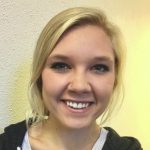
Bridget Eklund
Bridget is a graduate student in the Microbiology PhD program within the Department of Microbiology, Immunology, and Pathology. Her first rotation lab focuses on cell mediated immune responses to mycobacteria infections. She is also interested in investigating how changes in the microbial community of a person’s microbiome affect the host through RNA sequencing.
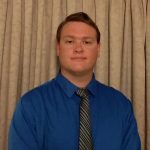
Caleb Begly
Caleb is a Master’s Degree EE Student at Colorado State University. He received a BS Computer Engineering degree from Colorado State University in May 2017, and an AS Physics degree from Colorado Mountain College in December 2014. The undergraduate degree focused on hardware classes and VLSI to build skills in digital systems design in addition to the core Computer Engineering coursework. For his senior design project, Caleb worked on the interdisciplinary BioBox environmental chamber project which won first place in the CSU 2017 E-Days. This project, coupled with the GAUSSI classes, sparked an interest in biosensing. Caleb is working on sensing applications using the third generation CMOS biosensor chip. Caleb enjoys hiking, biking, playing the mandolin, PC gaming, and working on hardware and software projects in his spare time.
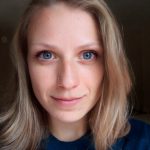
Charlotte Cialek
Charlotte is a PhD candidate in the Biochemistry and Molecular Biology department. Her project is a collaboration of her co-mentors, Tai Montgomery and Tim Stasevich. She is using Dr. Stasevich’s novel imaging technique to disseminate the mechanism of microRNA and protein Argonaute in gene silencing at the translation level. Her project seeks to further our understanding protein translation regulation and mRNA decay.

Chloe Stenkamp-Strahm
Chloe is a DVM/PhD student that studies gastrointestinal bacterial pathogen shedding and carriage dynamics in dairy cows. She is currently assessing how GI microbial communities influence colonization of bovine E.coli O157. A future focus of her work is to build models that predict this colonization and shedding, using national USDA samples with machine learning algorithms and GIS mapping. (photograph not provided)
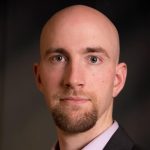
Daniel Ball
Daniel is pursuing a Master of Science in Computer Engineering under the advisement of Dr. Thomas Chen. He completed a BS in computer Engineering at Colorado State University in May 2017. Daniel’s work focuses on development on a comprehensive ex vivo environment chamber with integrated fluorescence microscopy. The box will be capable of precise control of environmental conditions with the goal of keeping microbiological specimens alive for extended periods of time. The box is intended to be large enough to house other moderately sized microfluidic devices.
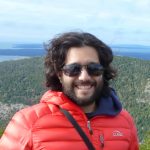
Daniel Jonas
Daniel is a doctoral student at Colorado State University in the mathematics department. He is working with Dr. Kirby on connecting mathematical models with biological data. In particular, he will be working with a variety of epidemiological data sets, for which state space reconstruction methods will be applied to uncover underlying dynamical models. Machine learning techniques will also be used to scrutinize data in an attempt to identify properties of key interest such as pathogen tolerance and maintenance, biological mechanisms of tolerance, and the validation of pro-tolerance interventions. The research resources provided by the GAUSSI training program will prove invaluable in his investigations.
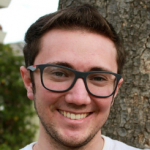
Dayton Pierce
Dayton is a recent graduate of the Master’s B program in Microbiology at CSU and is now a student in the Cell and Molecular Biology PhD program. His current research examines the metabolic processes of cells infected with Dengue viruses. Specifically, his work revolves around the glycolytic enzyme, hexokinase 2, and its impact on replication of Dengue viruses.

Don Neumann
Don is a graduate student pursuing his PhD in Computer Science as part of Dr Ben-Hur’s research group. Don’s research focuses on the intersection of machine learning and biology and he worked on protein interface prediction before moving onto modified base detection using next-next-generation sequencing technology using deep learning. The work aims to discover more about the epitranscriptome. (photograph not provided)
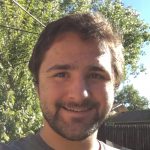
Dylan Parker
Dylan earned his B.S. in Biochemistry from the University of Oregon in 2014 and began work as a graduate student in the department of Biochemistry and Molecular Biology at CSU in 2015. Working in the laboratory of Dr. Erin Nishimura, his research focuses on the developmental role of mRNA localization and dynamics in the C. elegans early embryo. He is currently using single-cell RNA sequencing as well as a variety of microscopy techniques to identify and perturb key mRNA developmental determinants to better understand the mechanisms of developmental regulation and cell-fate determination.
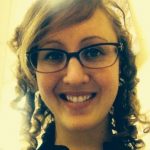
Gareth Halladay
Gareth is a graduate student pursuing her Master’s degree in Computer Science as part of Dr. Ben-Hur’s research group. She has a B.S. in Biomedical Sciences from Colorado State University. Gareth plans to analyze and identify global patterns of alternative splicing over a large collection of RNA-seq data for Arabidopsis thaliana. She is passionate about teaching and taught an introductory computer science course at CSU this summer.
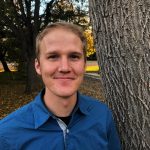
Gus Waneka
Gus is pursuing a PhD in the Biology Department under the advisement of Dr. Dan Sloan. Gus’s research focuses on understanding endosymbiont genome stability, by using high fidelity sequencing to characterize mutation in endosymbiotic genomes. The work aims to address the fundamental evolutionary question of how endosymbiotic relationships are established and maintained.

Heather Deel
Heather is a doctoral student in the department of Animal Sciences and the Cell and Molecular Biology Graduate Program. She received her B.S. in Biology at Sam Houston State University, where she researched the core microbiome of human cadavers at an anthropological facility. Currently, she is working on characterizing microbial succession in human cadaver rib bones. She will then use this microbiome data to build a microbial clock for estimating the postmortem interval of human cadavers.
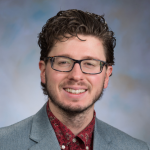
Jared James Luxton
Jared is a Ph.D candidate in the Cellular and Molecular Biology program working as a research assistant for Susan Bailey in the Environmental & Radiological Health Sciences department. The effects of spaceflight on the human body are unknown, presenting significant, potentially compromising risks to longterm manned space missions. Using specialized fluorescence microscopy techniques and data analyses pipelines written in Python, Jared examines the effects of spaceflight on telomere length dynamics and chromosome rearrangements in astronauts aboard the International Space Station, determining consequences for human health and feasibility of longterm missions. Learn more about Jared’s work at LinkedIn and GitHub.
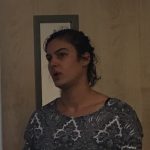
Jasmine Nejad
Jasmine is a PhD student in the Biomedical Engineering program at CSU. Her work is focused on software and microfluidics systems for a high-density microelectrode array for quantitative spatial mapping of electrochemical signals in live tissue. This type of sensor system could provide a platform for characterizing efficacy of chemotherapeutic for personalized medicine.
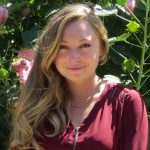
Jessica Warren
Jessica is a graduate student in the Department of Biology working in Dr. Dan Sloan’s lab. Her research focuses on the evolution of mitochondrial translational machinery by studying the cytonuclear response to transfer RNA (tRNA) gene loss. This work will provide unique insight into cellular mechanisms required for eukaryotic translation and involves the sequencing, assembly and comparison of multiple mitochondrial genomes, tRNA-seq libraries, and transcriptomes.
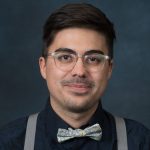
Josué Rodríguez-Ramos
Josué is a PhD student in the department of Soil and Crop Sciences that is pursuing a degree in Ecology as part of the Graduate Degree Program in Ecology (GDPE). He is working in the laboratory of Dr. Kelly Wrighton to study the influence of viruses on microbial communities and how these interactions impact ecosystem-scale biogeochemical processes. Specifically, Josué is working on the effects that viruses have on microbial communities in aquatic systems including the viral influences on nitrogen and carbon cycling in the Columbia river and methane-producing microorganisms in freshwater wetlands. Prior to pursuing his PhD, Josué obtained a B.S in Industrial Microbiology from the University of Puerto Rico, Mayagüez.
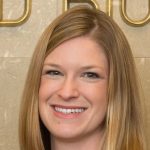
Julia Labadie
Julia is a DVM/PhD student in the Department of Environmental and Radiological Health Sciences pursuing her PhD in cancer epidemiology. Her research focuses on understanding genetic and environmental risk factors for canine lymphoma. Prior to attending CSU, Julia earned her MSPH in Epidemiology at Emory University and her BS in Biological Sciences at UC Davis.
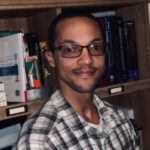
Julius Stuart
Julius joined the Snow Lab in January 2018. Having obtained a B.S. degree in Biology from Warren Wilson College, he spent time working as a lab technician before joining the PhD program in Chemistry at Colorado State University. His research interests include computational protein design and optimizing existing protein properties for biosensing applications in various contexts.
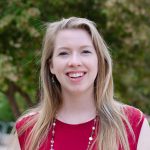
Lindsay Winkenbach
Lindsay is a PhD candidate in Biochemistry and Molecular Biology who studies how mRNA localization in early embryogenesis influences development in the lab of Dr. Erin Osborne Nishimura. Interested in STEM communication and advocacy, she serves as the VP of Engagement for the CSU Graduate Student Council, On Campus Liason for Graduate Women in Science, and an officer for Science in Action.
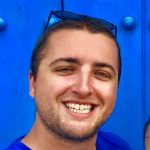
Luke Schwerdtfeger
Luke is a PhD student in the Biomedical Sciences program. He works under Dr. Stuart Tobet. Luke’s research uses an in vitro culture model for mammalian intestine, coupled with ongoing development of a microfluidic system to regulate environmental conditions of the intestine more accurately. Coupling these cultures with both microbiome and metabolome analysis, he hopes to further understand how the innate bacterial – immune – neural signaling of the intestines occurs in both health and disease.
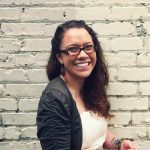
Lyndsey Gray
Lyndsey is a PhD student in CSU’s Microbiology, Immunology, and Pathology Department. Working in Dr. Brian Foy’s lab, her research investigates how mass drug administration of ivermectin among human populations affects entomological indices of malaria transmission in children under five years of age. Specifically, she will be studying if ivermectin disrupts the age structure and causes novel, genetic variations or genetic bottlenecks in wild Anopheles gambiae populations.

Michael Friedman
Michael is a graduate student at Colorado State University in the department of biology studying within Dr. Daniel Bush’s Lab. His work focuses on enhancing crop production to support bioenergy technology and food security needs through plant molecular biology, biotechnology, and gene discovery.
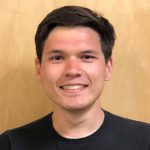
Michael May
Michael received two Bachelors degrees in Chemical Biological Engineering and Biomedical Engineering at Colorado State University in 2017 and is currently a doctoral student in the School of Biomedical Engineering who is co-advised by Dr. Munsky and Dr. Stasevich. Michael works on problems characterizing variability in single-cell, single-molecule experiments using computational and mathematical tools, with future directions moving towards using control theory with stochastic processes in cell populations. His current work examines the ability to identify proteins involved in translation using imaging techniques developed by Tim Stasevich using stochastic models and his next project is developing optogenetic controllers to control gene expression in cell populations.
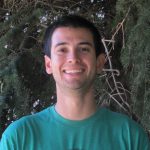
Mike Mangale
Mike is a PhD student in the Department of Microbiology, Immunology, and Pathology working with Dr. Brad Borlee. His research focuses on the bacterium Burkholderia pseudomallei, which is found in tropical and subtropical regions worldwide and causes the deadly disease known as melioidosis in humans and animals. Specifically, he is interested in biofilm dynamics and hopes to better understand how bacterial pathogens transition from an environmental reservoir to establish persistent infections within susceptible hosts.
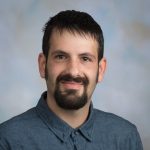
Michael Siegel
Michael is a graduate student pursuing his Master’s degree in Electrical Engineering. He received a BS in Electrical Engineering at Colorado State University in May 2019, and an AS in Automotive Technology from Front Range Community College in May 2015. For his senior design project, Michael was part of the Bio-Analysis project which won first place in the CSU 2019 E-days. Both the project and support from his advisor inspired Michael to continue into graduate school and work with biosensors. Michael will be working as part of Dr. Tom Chen’s group to develop and test various biosensors which can simultaneously measure different aspects of cell metabolism. In his spare time, Michael enjoys RC hobby vehicles, PC gaming, and restoring antique cars.
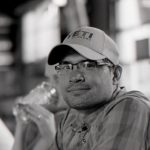
Reyes Murrieta
Reyes is a graduate student pursuing his PhD in Microbiology, Immunology, and Pathology working under Dr. Greg Ebel. His research uses computation biology and experimental virology to study how different ecological and environmental conditions can impactFlavivirus population diversity. Through GAUSSI Reyes is looking forward to advancing his skill set as a computational biologist and establish new interdisciplinary collaborations for future projects.
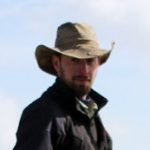
Richard Berl
Richard is a doctoral student in the Department of Human Dimensions of Natural Resources with a research focus on the dynamics of the transmission and evolution of culture. In the past, Richard has worked on the behavioral ecology of wild white-faced capuchin monkeys (Cebus capucinus), social behavior in captive and wild gray wolves (Canis lupus), and imitation and emulation in hunter-gatherers and horticulturalists of the Congo Basin. Current projects include evaluating the drivers of “prestige” and its influence on cultural transmission processes, and investigating the genetic and linguistic history of the Chabu, an isolated group of hunter-gatherers in the highland rainforest of Ethiopia.
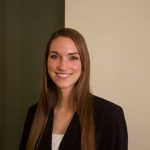
Sarah Morton
Sarah is a PhD student in the Health and Exercise Science Department and is pursuing a degree in Human Bioenergetics. Her research in Dr. Broussard’s Sleep and Metabolism Lab focuses on the negative metabolic consequences of sleep and circadian disruption. Identifying likely mechanisms contributing to the specific tissues or pathways impaired by insufficient sleep and circadian disruption are critical for developing countermeasures to improve metabolic function when these perturbations are unavoidable.
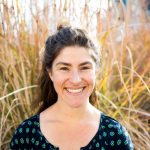
Seré Williams
Seré is passionate about understanding abiotic stress response in plants. Working with the Reddy Lab in the Department of Biology, she is looking at drought stress response in rice. A specific transcription factor is known to be involved in cold, herbivory, and salt stress response. In rice, a knock-out mutant of this transcription factor shows wilting while the wild type is still standing strong. Seré is generating complimented and overexpression lines to verify that this drought response phenotype is linked to this hypothesized transcription factor. She is also performing RNA-seq to identify specific gene products differentially regulated in drought stress response. With the GAUSSI program, Seré is analyzing big data to help solve complex problems, and ultimately, help farmers grow crops in a changing world.
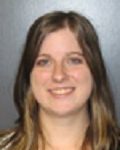
Shannon Stiverson
Shannon is a PhD student in the mathematics department at CSU. Her work focuses on the application of manifold learning techniques to biological data sets. She is currently exploring techniques for early diagnosis of influenza A based on changes in host genetic expression.
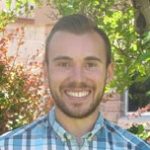
Shaun Cross
Shaun is a graduate student in the Department of Microbiology, Immunology, and Pathology. He is currently doing his rotations with several faculty, most recently with Mark Stenglein. His current research is to identify and characterize virus segments in Anopheles gambiae mosquitoes via RNA FISH that were discovered from previous sequencing.
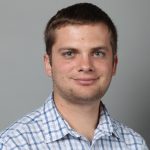
Steven Lakin
Steven is an equine veterinarian and a PhD student in the department of Microbiology, Immunology and Pathology. His work in Dr. Abdo’s lab involves the development and implementation of novel methods in statistics and bioinformatics to enable cutting-edge research in the areas of food safety, public health, and epidemiology. Outside of science, Steven practices Aikido with Fort Collins Aikikai and competes in medieval games and jousting with the Knights of the Tempest team.
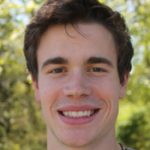
Zach Fox
Zack has an interest in data-driven modeling of gene regulation. Specifically focusing on two different cells of the same population that behave heterogeneously. Often times average, population level dynamics of gene expression do not provide sufficient information to identify underlying molecular mechanisms of gene transcription. By incorporating single-cell, single-molecule data into mathematical models, we make quantitative predictions about how cells behave in response to different stimuli.